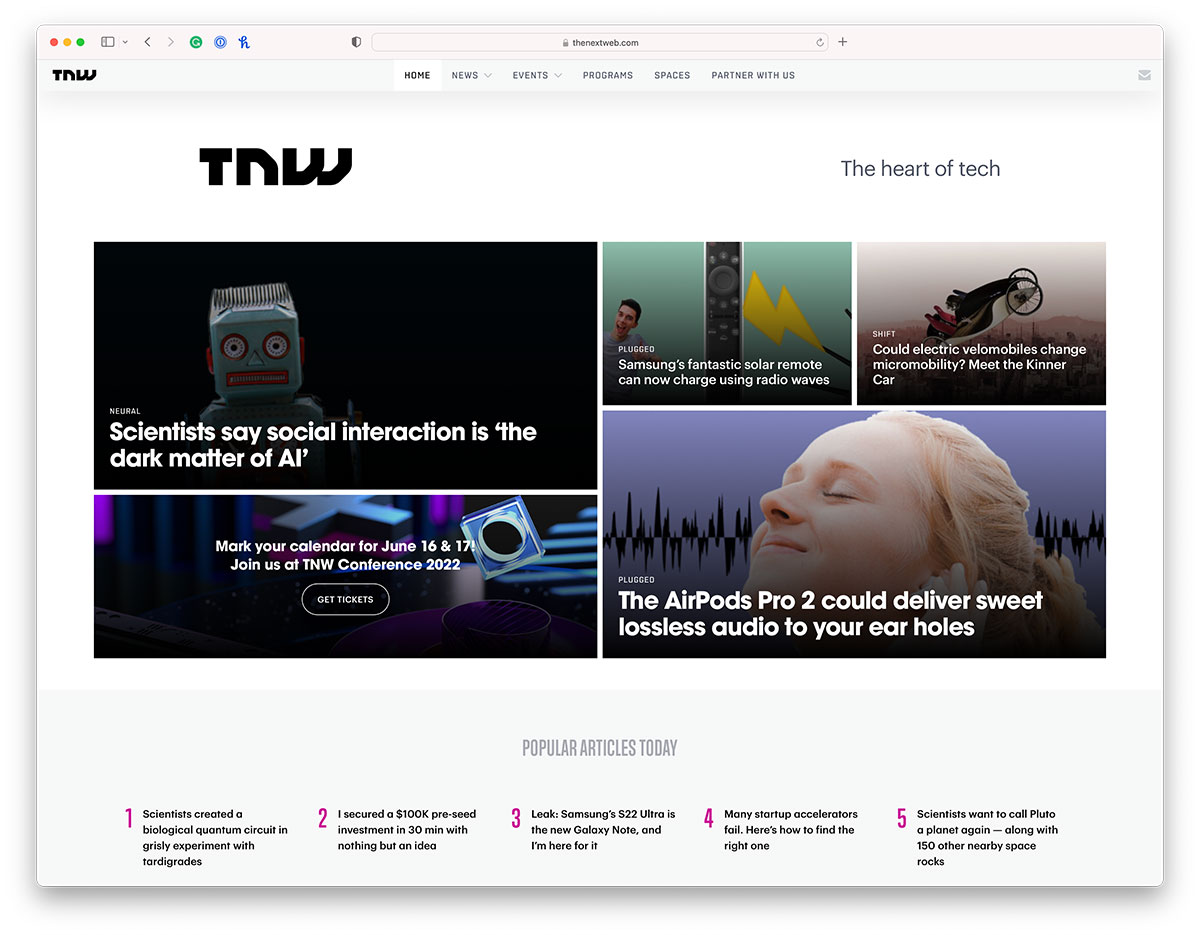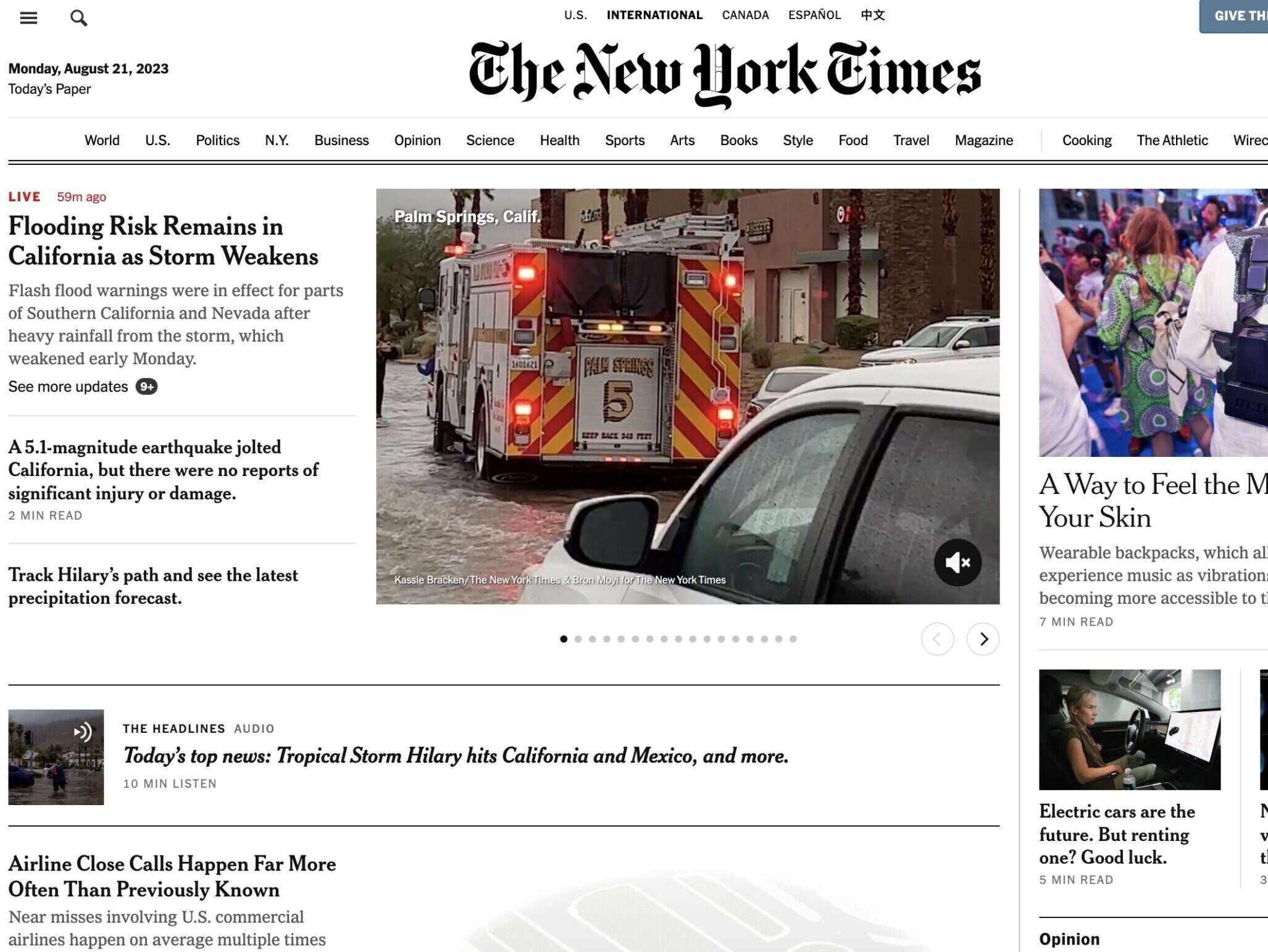News Websites - Truths
News Websites - Truths
Blog Article
Get This Report on News Websites
Table of ContentsNews Websites for DummiesNews Websites Fundamentals ExplainedSome Known Factual Statements About News Websites News Websites Can Be Fun For AnyoneThings about News Websites
It was down in the UK and Brazil but up a few other nations, such as Greece, Bulgaria, and Poland (News Websites). This year, for the initial time, we inquired about the various means that individuals stay clear of the information and located that around half of avoiders (53%) were attempting to do so in a broad-brush or periodic way as an example, by transforming off the radio when the news began, or by scrolling past the information in social media sitesYou claimed that you try to actively avoid news.

I'm possibly picking to learn more light-hearted stories than I utilized to at the minute. M, 51, UK Turning my back on news is the only method I feel I can cope sometimes. I have to knowingly make the effort to transform away for my very own mental health.
The Greatest Guide To News Websites
Careful avoidance of Ukraine information was highest in many of the countries closest to the conflict, enhancing findings from our added study in 2015, right after the war had begun. Our information may not suggest a lack of rate of interest in Ukraine from nearby nations yet rather a need to handle time or safeguard mental wellness from the really actual scaries of battle.
Contrasting Finland with a politically polarised nation such as the United States (see next chart) that is much less impacted by the battle, we discover a very various pattern of subject evasion. In the USA, we find that customers are more probable to avoid subjects such as national politics and social justice, where discussions over concerns such as gender, sexuality, and race have ended up being very politicised.
American national politics are rather harmful nowadays. I find in some cases that I need to disconnect from stories that simply make me upset. F, 61, United States For some individuals, bitter and dissentious political arguments are a factor to shut off news altogether, but also for some political partisans, avoidance is typically about shutting out viewpoints you don't wish to listen to.

See This Report on News Websites
Some are wanting to make information extra look at here accessible for hard-to-reach groups, broadening the information agenda, commissioning even more motivating or positive news, or embracing constructive or solutions journalism that give people a feeling of hope or individual agency. In our survey this year, we asked participants about their rate of interest in these various strategies.
This discusses why tales like Ukraine or nationwide politics perform well with information regulars but can at the very same time transform much less interested users away (News Websites). Selective avoiders are much less thinking about all kinds of information than non-avoiders yet in relative terms they do seem to be a lot more thinking about favorable or solutions-based information

Little Known Facts About News Websites.
2023). This may hold true in the minute, but gradually it appears to be leaving many individuals vacant and much less pleased, which may be undermining our connection with and count on the information. Across markets, total rely on news (40%) and rely on the sources individuals utilize themselves (46%) are down by a further 2 portion points this year.
Without a doubt, through the rear-view mirror, the COVID-19 depend see post on bump is plainly visible in the following graph, though the direction of travel afterwards has been blended. In many cases (e.g. Finland), the count on boost has actually been preserved, while in others the upturn looks more like a blip in a tale of ongoing long-lasting decline.
A few of the highest possible reported levels of media objection are discovered in countries with greatest degrees of distrust, such as Greece, the Philippines, the United States, France, and the UK. The most affordable levels of media objection frequent those with higher degrees of count on, such as Finland, Norway, Denmark, and Japan.
7 Simple Techniques For News Websites
This year we asked respondents regarding their choices for text, sound and video when taking in information online. Usually, we find that the majority still prefer to check out the information (57%), instead than watch (30%) or pay attention to it (13%), yet younger people (under-35s) are extra likely to listen (17%) than older teams.
Behind the averages we locate substantial and surprising nation differences. In markets with a strong analysis practice, such as Finland and the United Kingdom, around 8 in 10 still like to read online information, but in India and Thailand, around four in ten (40%) say they prefer to see information online, and in the Philippines that percentage is over fifty percent (52%).
Report this page